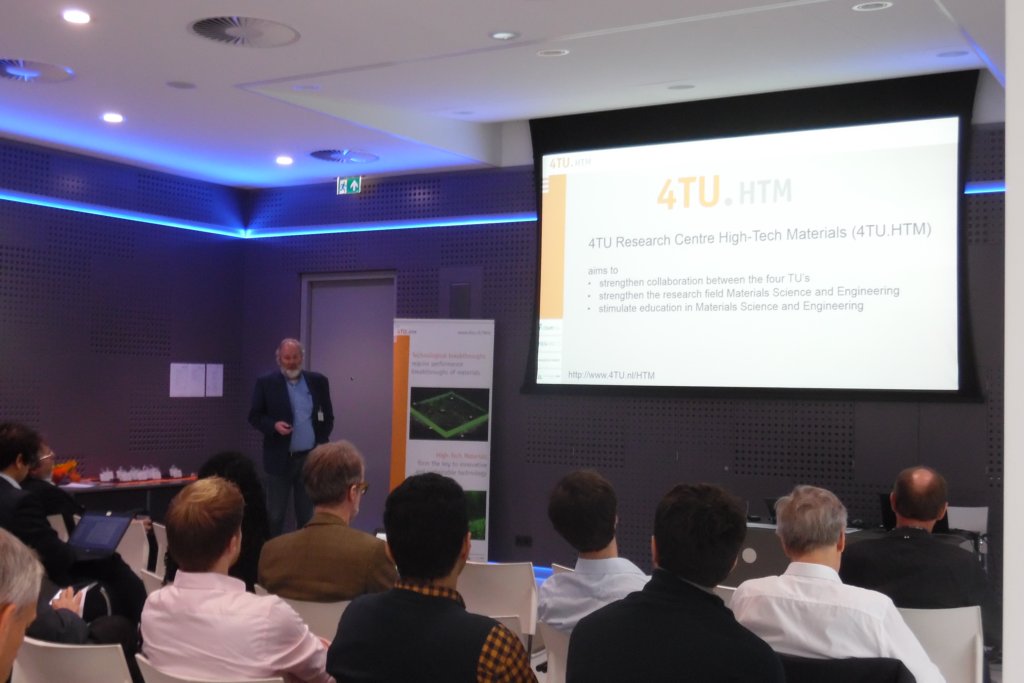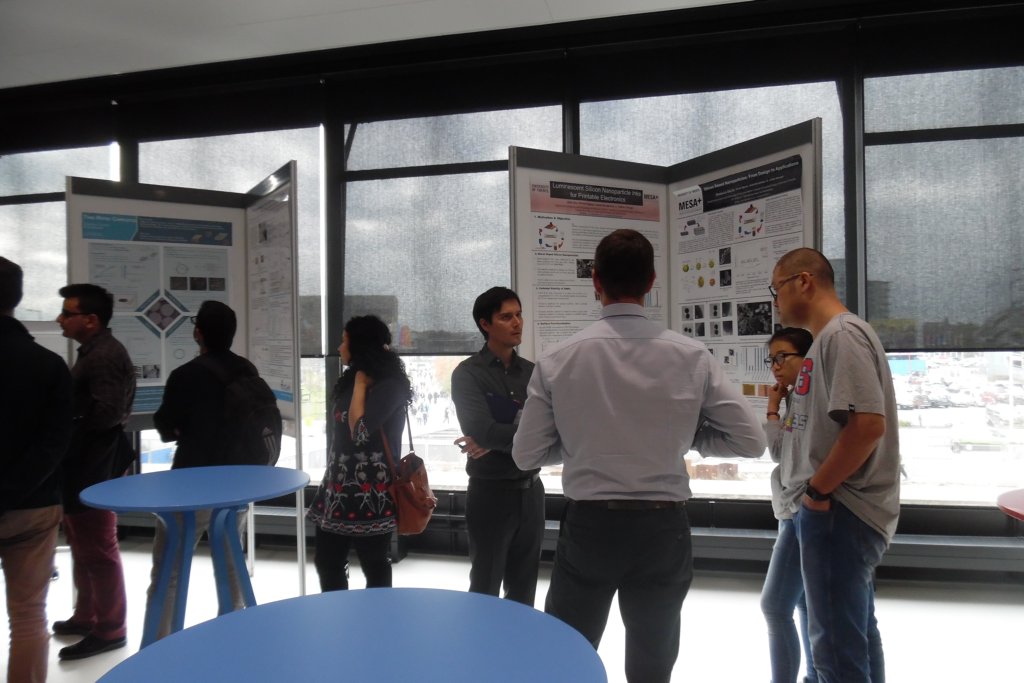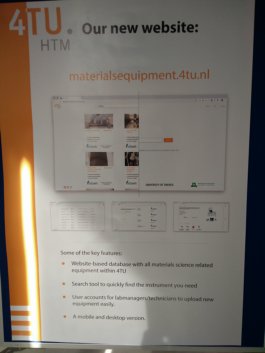Dutch Materials 2018
The 4TU.HTM annual symposium took place in Utrecht (Jaarbeurs, Beatrix building) on Friday 12 October 2018. Here you can find pictures and Pdf files of posters and presentations.
Full programme: Dutch Materials 2018 (Pdf file)
Welcome and introduction (Pdf file)
by prof.dr.ir. Jilt Sietsma (scientific director 4TU.HTM)
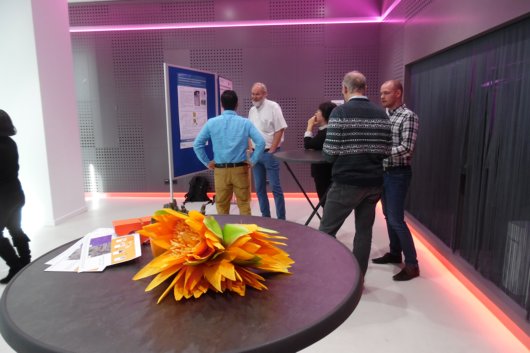
Keynote Speakers
- prof. Annika Borgenstam (KTH Royal Institute of Technology, Stockholm)
- prof. Nicola Marzari (École Polytechnique Fédérale de Lausanne)
- prof. Kurt Kremer (Max Planck Institute for Polymer Research)
Prof. Annika Borgenstam
KTH Royal Institute of Technology, Stockholm
Unfortunately, prof. Borgenstam wasn't able to present her talk. We are happy that she did share her presentation with us.
Title
On the development of theoretical and experimental tools for materials design of high strength steels and cemented carbides (Pdf file)
 Short biography
Short biography
Annika Borgenstam is professor in Micro and Nano structures in Alloys. She is Head of the Department of Materials Science and Engineering at KTH Royal Institute of Technology in Stockholm, Sweden and Director for a research centre, the Competence Centre Hero-m 2 Innovation. She received her Master of Science in Engineering, Materials Technology, in 1990 and Doctoral degree in Materials science in 1997. Her work is on the structure of metallic materials from nano- to micro level, focusing on the understanding of how a particular structure is formed and how it can be modified. The emphasis is on the theoretical and experimental analysis of these structural transformations, with particular focus on the link between thermodynamic and kinetic properties and transformation mechanisms. The main objective is to develop models that describe how the structures are formed which can be used in the design of new materials or to improve already existing materials using an ICME approach.
Instead, Jilt Sietsma (Materials Science and Engineering Department at TU Delft) presented some results of research on nucleation and growth. 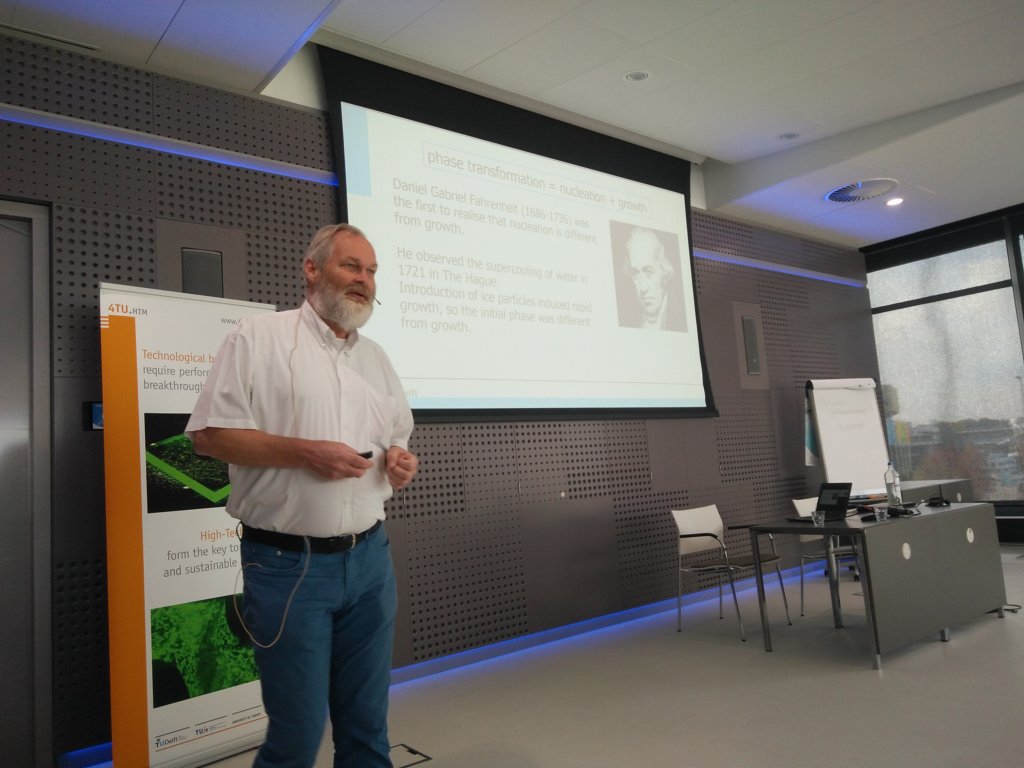
Prof. Nicola Marzari
École Polytechnique Fédérale de Lausanne (EPFL)
Title
Discovering novel materials: the convergence of high-performance computing, high-throughput computing, and data analytics (Pdf file)
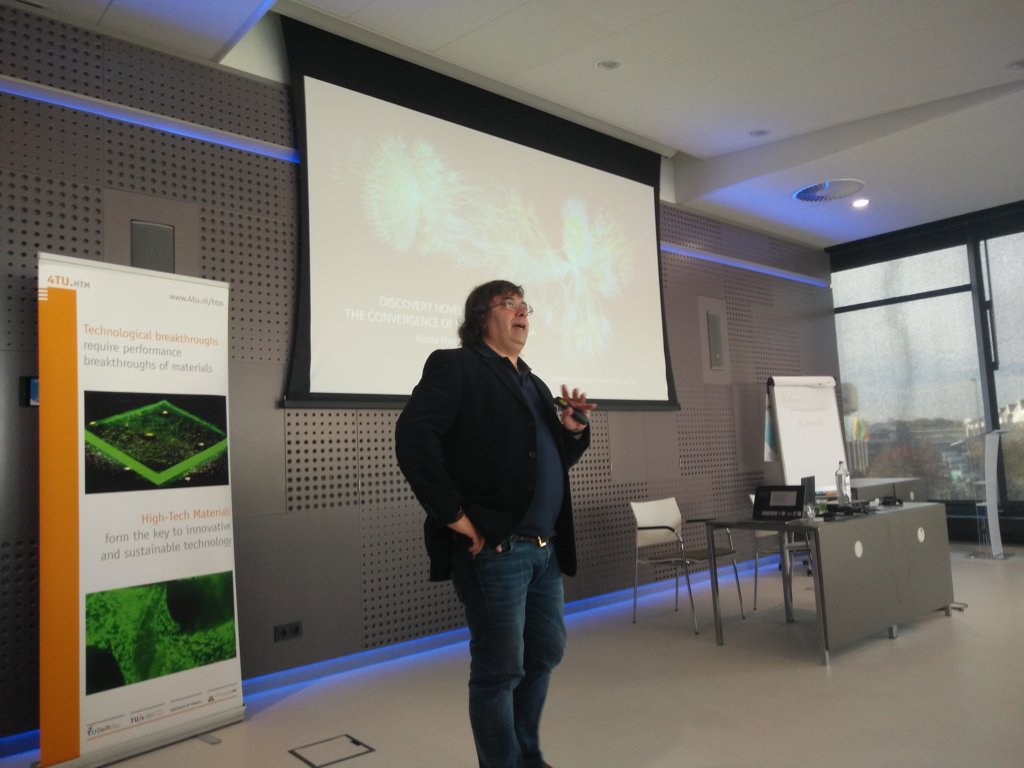
Abstract
Quantum-mechanical simulations have become massively used tools for scientific discovery and technological advancement: thanks to their predictive power they can suggest, accelerate, or support actual physical experiments. This is a far-reaching paradigm shift, substituting the cost- and time-scales of brick-and-mortar facilities, equipment, and personnel with those, very different, of computing engines, and aiming at understanding, predicting, or designing the properties and performance of novel or complex materials and devices with computer simulations.
I will highlight how the convergence of high-performance computing, high-throughput computing, and data analytics is heralding a revolution in the effort to discover novel materials with improved properties and performance. I will in particular discuss the software infrastructure required to create, monitor, record, reproduce, and disseminate millions of complex calculations, and illustrate its power and promise with examples dedicated to the discovery of novel two-dimensional materials and solid-state ionic conductors.
Recommended by prof. Nicola Marzari:
- AiiDA - Automated Interactive Infrastructure and Database for Computational Science: http://aiida.net
- Materials Cloud - A Platform for Open Science. Built for seamless sharing of resources in computational materials science: http://materialscloud.org

Short biography
Nicola Marzari holds the chair of Theory and Simulation of Materials at the École Polytechnique Fédérale de Lausanne, where he is also the director of the Swiss National Centre on Computational Design and Discovery of Novel Materials. Previous tenured appointment include the Toyota Chair for Materials Engineering at the Massachusetts Institute of Technology, and the first Statutory Chair of Materials Modelling at the University of Oxford, where he was also the director of the Materials Modelling Laboratory. He is the current chairman of the Psi-k Charity and Board of Trustees.
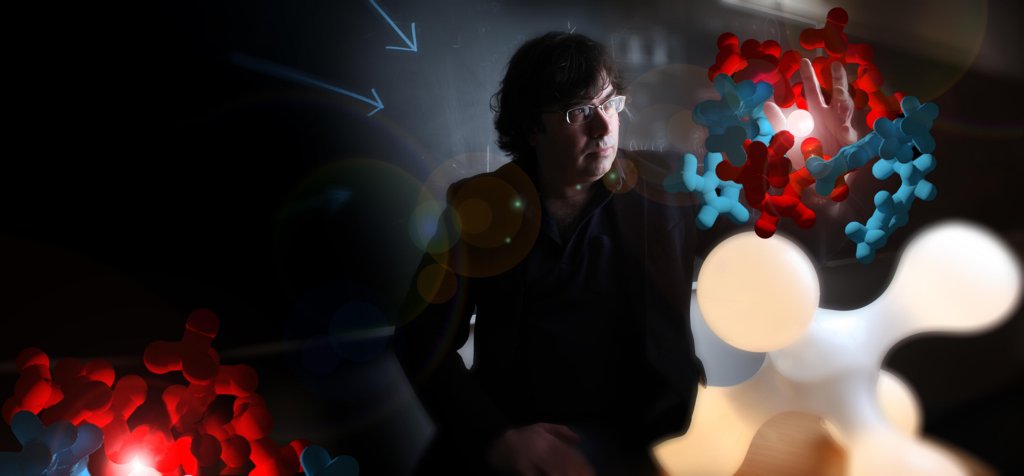
Nicola Marzari: Inventing new materials, atom by atom
(Source: EPFL)
Prof. Kurt Kremer
Max Planck Institute for Polymer Research
Title
Multiscale Modeling and Design of Smart Polymers
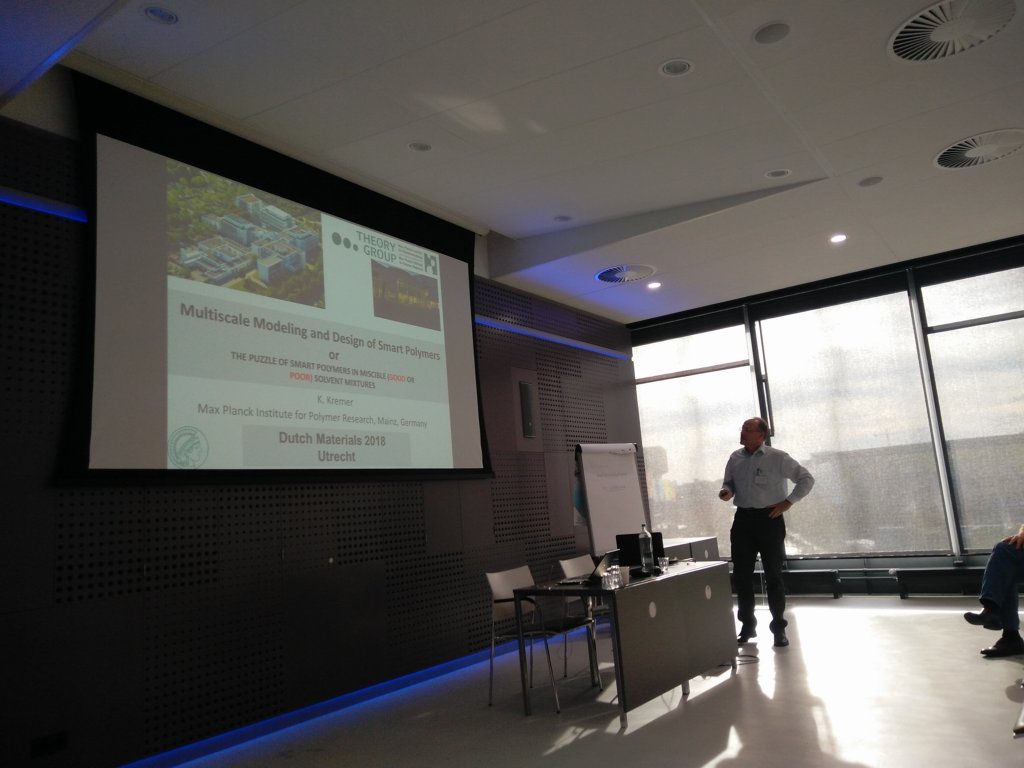
Short biography
Kurt Kremer joined the Max Planck Institute for Polymer Research in September of 1995, heading the newly established theory group. After studying physics he received his PhD in 1983 under the supervision of Prof. Binder. He performed computer simulations for dynamic and static properties of polymers in bulk and near surfaces. He moved for a post-doctoral stay to Exxon 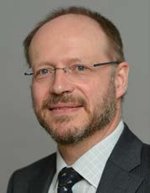 Research and Engineering Corporation, Annandale, New Jersey, USA, working on polymers and on charge stabilized colloids in collaboration with Drs. Grest, Pincus, and others. Being back in Germany he obtained his Habilitation in 1988 at the University of Mainz and joined the solid state laboratory of the KFA Jülich as senior scientific staff. He spent several extended visits as visiting professor/scientist at Exxon Research, UC Santa Barbara, University of Minnesota and New York University.
Research and Engineering Corporation, Annandale, New Jersey, USA, working on polymers and on charge stabilized colloids in collaboration with Drs. Grest, Pincus, and others. Being back in Germany he obtained his Habilitation in 1988 at the University of Mainz and joined the solid state laboratory of the KFA Jülich as senior scientific staff. He spent several extended visits as visiting professor/scientist at Exxon Research, UC Santa Barbara, University of Minnesota and New York University.
Kurt Kremer received several awards and recognitions and is member of the German National Academy of Science, Leopoldina.
Also speaking at Dutch Materials 2018
Dr. Carola Celada-Casero
Materials Science and Engineering Department at TU Delft
Title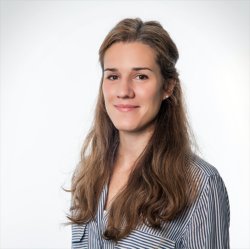
Understanding microstructural changes for the design of advanced steels
Dr. Carola Celada-Casero is a postdoctoral researcher in the group 'Microstructures' of the Department of Materials Science and Engineering (MSE) at TU Delft. She received her Master of Science in Applied Physics in 2011 and Doctoral degree in Materials Science in 2015. Her research focusses on understanding the microstructural changes induced by thermal-/thermo-mechanical treatments to improve the mechanical properties of advanced steels. By combining experiments and simulations, she aims to quantify the influence of microstructural variables depending on the thermal treatment, such as phase fractions, sizes, composition or defects, on the mechanical behaviour of multiphase steels. This knowledge allows to exert microstructural control during the processing route in order to create multiphase advanced steels with desired characteristics.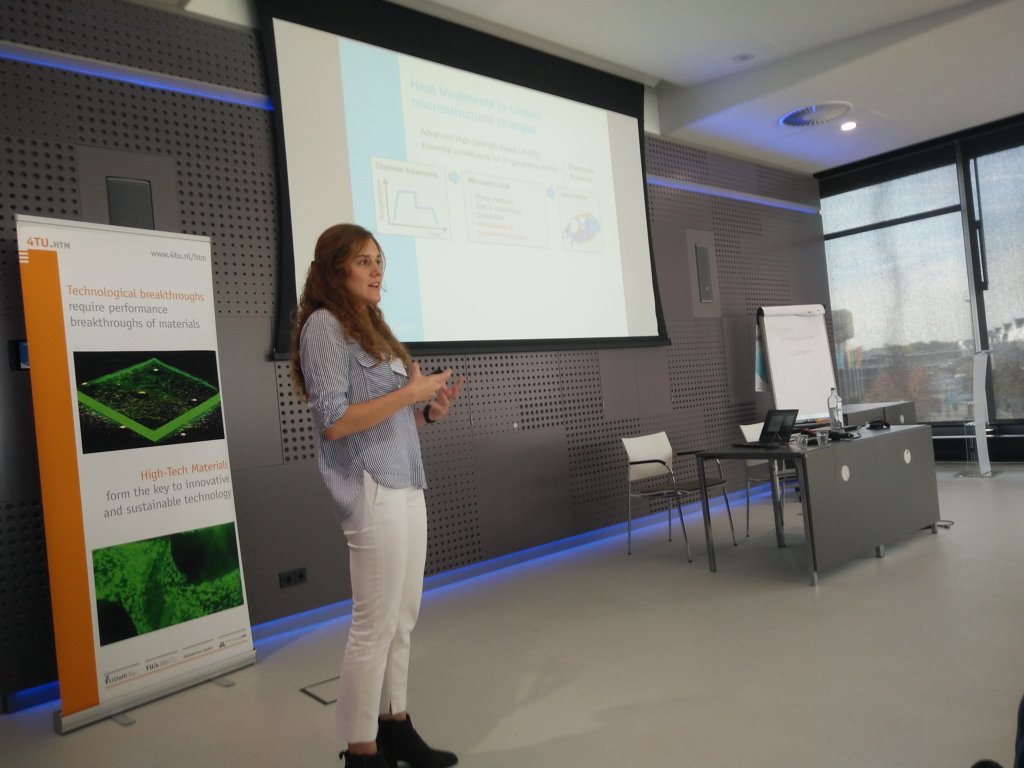
Dr. Sissi de Beer
Materials Science and Technology of Polymers group at University of Twente
Title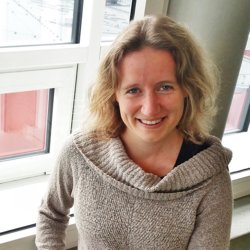
Wetting of polymer brushes by polymeric nanodroplets
Dr. Sissi de Beer obtained her PhD degree in 2011 in Applied Physics at the University of Twente. After postdoctoral stays at the Jülich Supercomputing Centre of the Forschungszentrum in Jülich, Germany and the Walker lab at the University of Toronto, Canada, she is now an assistant professor in the Materials Science and Technology group at the University of Twente. Her research focuses on obtaining a microscopic understanding of friction and adhesion for polymer coatings with the aim of developing smart functional surfaces. She has a strong background in atomic force microscopy, also combined with infrared spectroscopy, as well as molecular dynamics simulations.
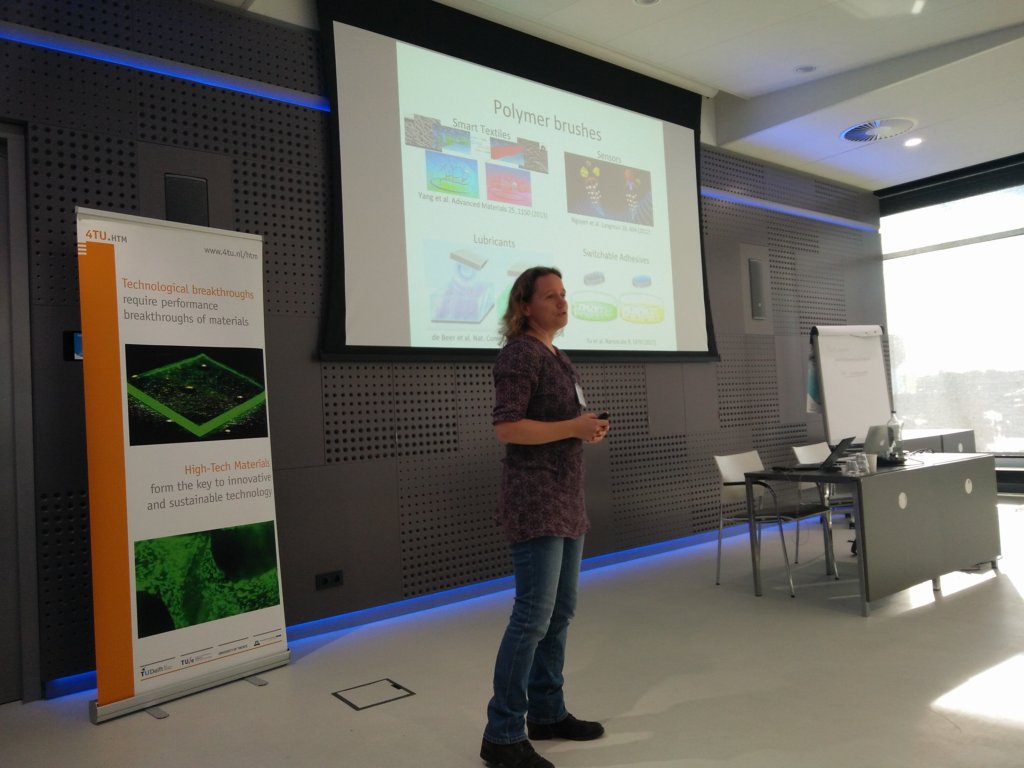
Dr. Ruben Higler
Physical Chemistry and Soft Matter at Wageningen University & Research
Title 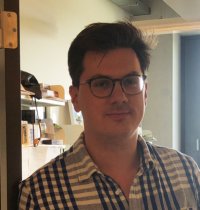
Anomalous dynamics and phase behaviour of dopants in weak crystals (Pdf file)
Dr. Ruben Higler did his Bachelor education at Wageningen University, studying "Molecular Life Sciences". After a short excursion into molecular biology he decided to do his Masters in Physical Chemistry and Soft Matter. Inspired by his MSc research he did his PhD in the Soft Matter group at Wageningen University with prof.dr.ir. Jasper van der Gucht and dr.ir. Joris Sprakel on the influence of disorder on the behaviour of weak colloidal solids.
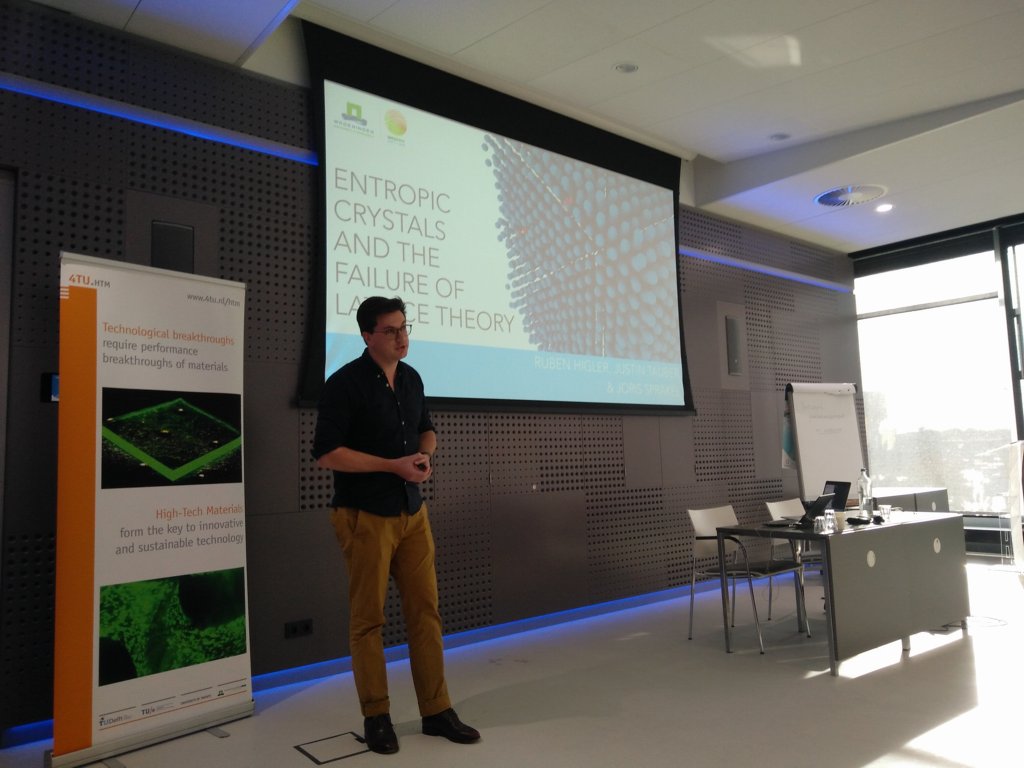
Haixing Fang M.Sc.
Novel Aerospace Materials at TU Delft
Title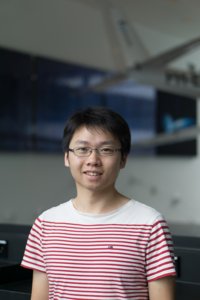
Direct view of self healing in creep alloys (Pdf file)
Haixing Fang is a PhD researcher in the group Novel Aerospace Materials at Delft University of Technology. His research interest concentrates on combining physics-based modelling and advanced physical characterization techniques such as neutron scattering and synchrotron radiation to grain more physical insight or to achieve new properties for advanced metallic materials. He works extensively on using synchrotron nano-tomography to visualize the precipitation at creep cavities in Fe-based alloys. He has been awarded the 2017 ASM Henry Marion Howe Medal and the 2018 TMS-AIME Champion H. Mathewson Award because of his co-authored article on self healing Fe-Mo alloys.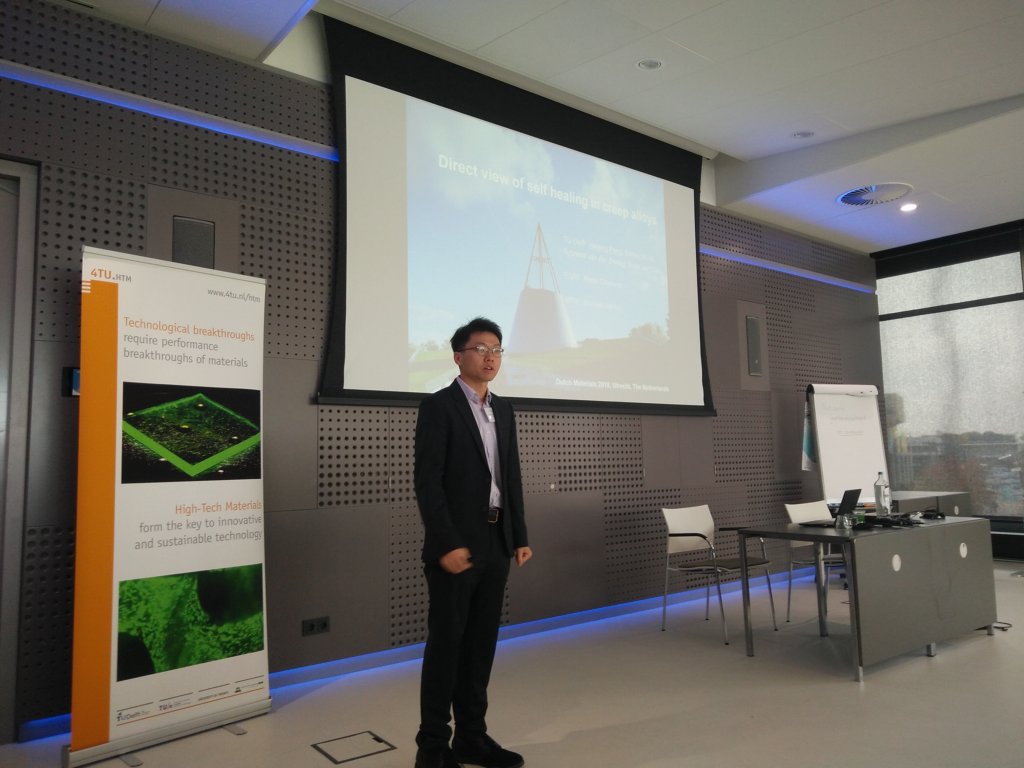
Furthermore...
- Mithun Martin Mendez presented the new website: http://materialsequipment.4tu.nl/
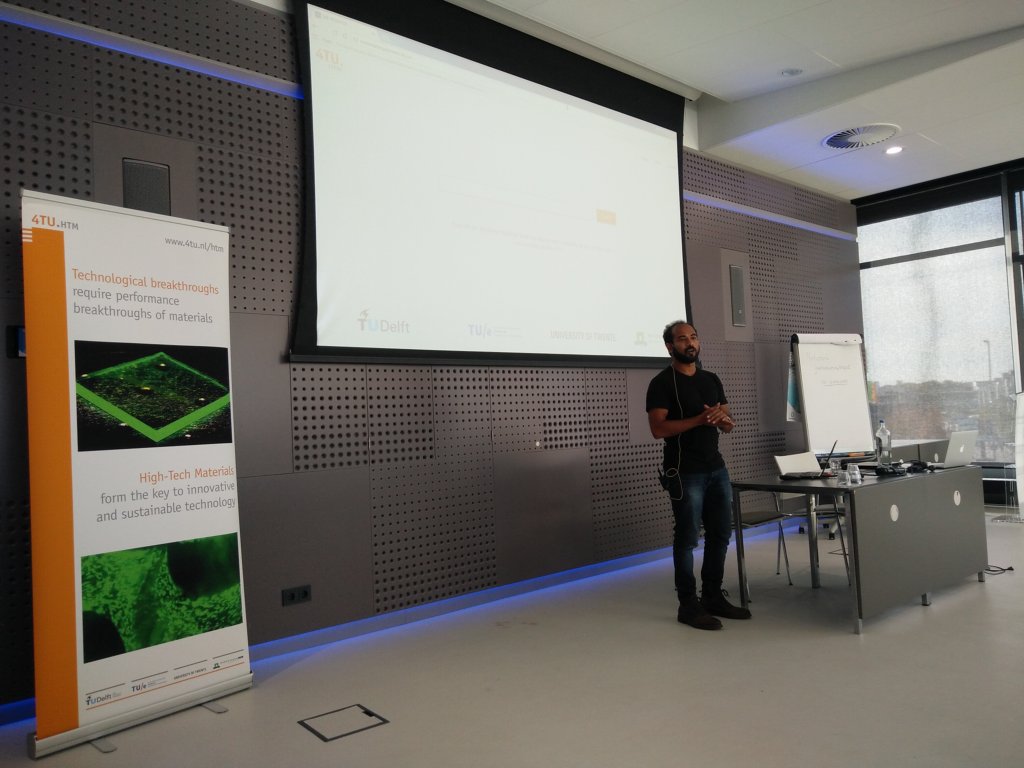
- There was a session (with presentations and posters) dedicated to the 4TU.HTM research programme 'New Horizons in Designer Materials'.
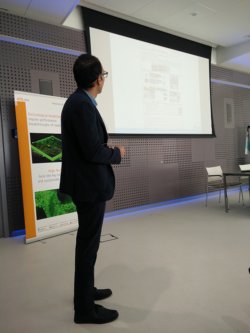
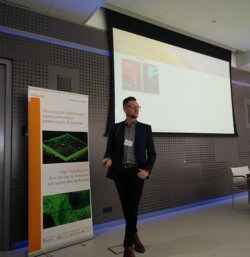
Dr. Matthew Hendrikx, TU/e
Communicating Surfaces
Dr. Amir Mirza Gheytaghi, TU Delft
Superconducting Nano Tubes
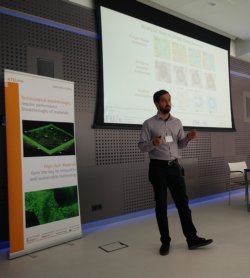
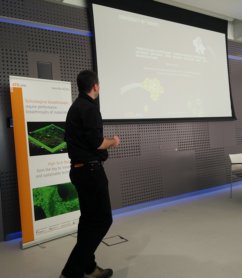
Dr. Mohammad Moradi, TU/e Dr. Maciek Kopeć, UT
Understanding Structure Formation From Flatland to Spaceland
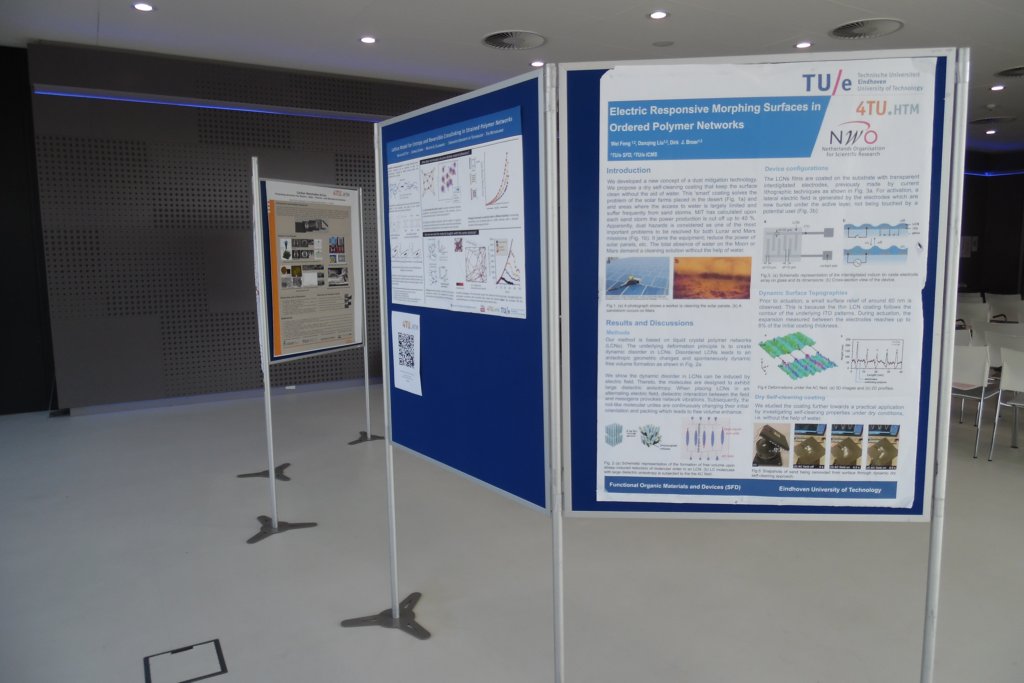
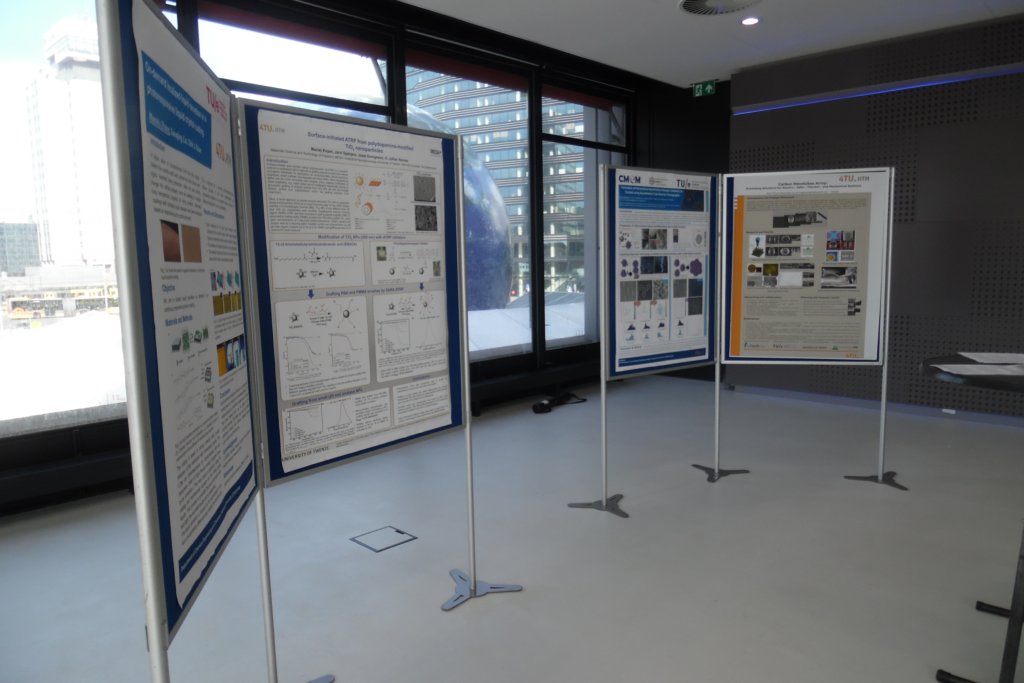
- Some participants brought their own research posters.
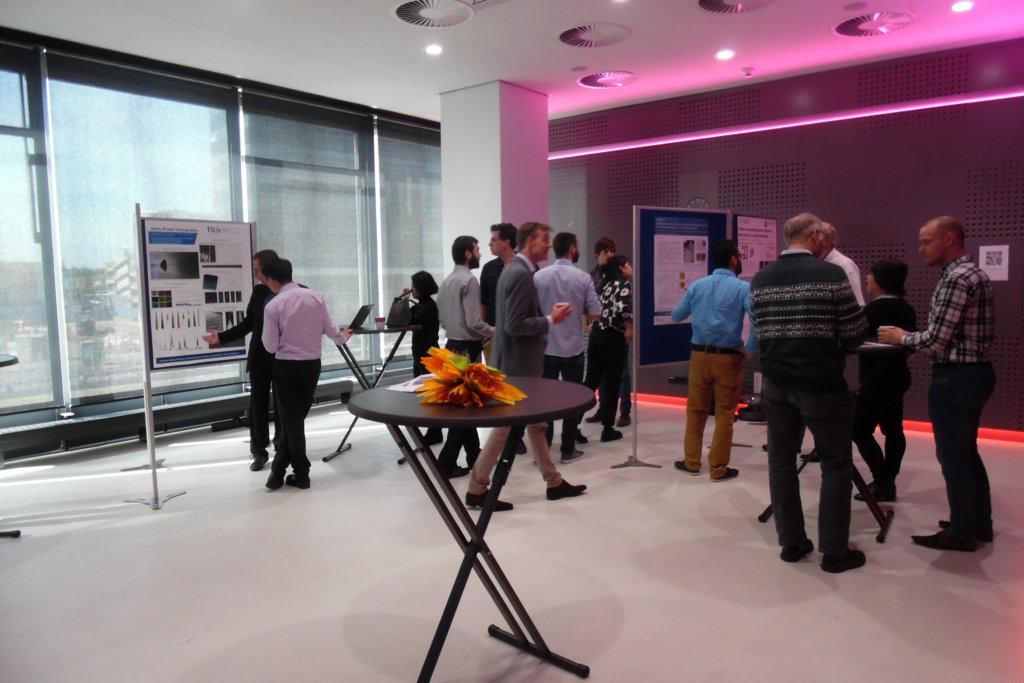
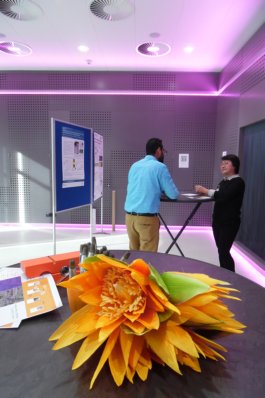
And of course, there was ample time for coffee, lunch and talks.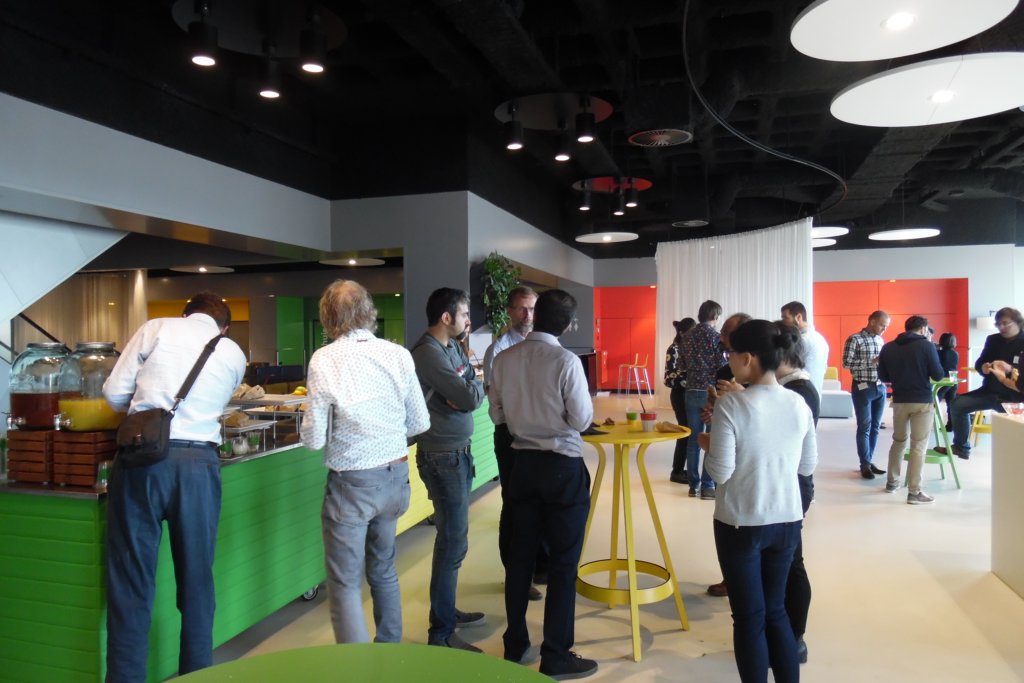
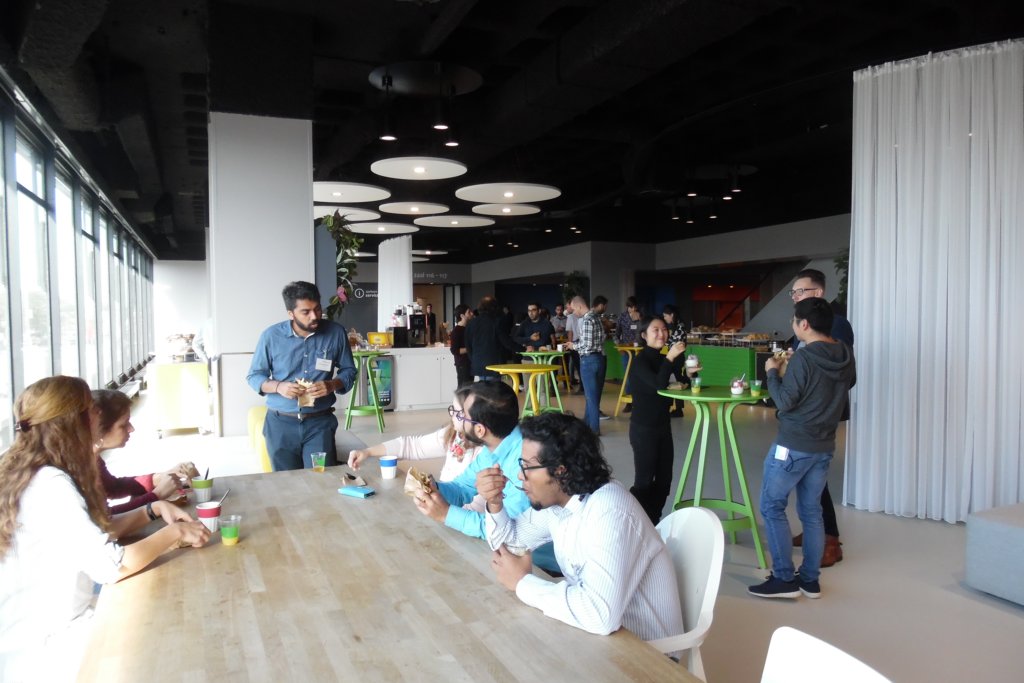
For questions: Reina Boerrigter (secretary 4TU.HTM)
Twitter: @4TU_HTM, #dutchmaterials
Previous editions
Dutch Materials 2017
Dutch Materials 2016
Dutch Materials 2015
